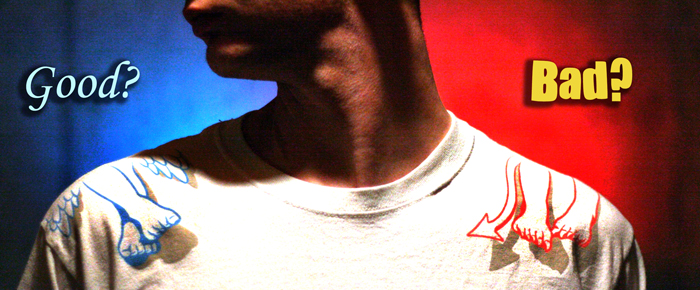
By Bronwyn Ison
Hopefully your ego did not get the best of you in the past week, reference part one of last weeks article. Having a big ego, by opinion of most, is not viewed positively. Sigmund Freud’s psychoanalytic theory contains three elements of the personality. Comprised of the id, the ego and the superego. The three of these work together to create complex human behaviors.
As a gentle reminder, the “id” is driven by the pleasure principle. This is truly the only personality component of the three that is present at birth. The id seeks instant gratification of all needs, wants, desires, and urges. It also strives to meet the basic and main primitive urges to include hunger, thirsts, anger, and sex. Tension may be created when our needs are not fulfilled and this is called the primary process. Simply meaning the process moving towards meeting that immediate need.
The “ego,” is one of the three elements responsible for dealing with reality. As we know reality can bite. According to Freud, the ego develops from the id and ensures that the impulses of the id can be expressed in a manner acceptable in the real world. In conjunction with the ego it functions as conscious, preconscious, and unconscious mind. Then there is the reality principle, which is what the ego operates off of to satisfy the id’s desires. It attempts to do so in realistic and socially appropriate ways.
Let’s revisit the functions in tandem with the ego. According to Freud, the conscious part of the superego includes information about things that are viewed as bad by parents and society. These behaviors are often forbidden and lead to bad consequences, punishments, or feelings of guilt and remorse. The preconscious mind is a part of the mind that corresponds to ordinary memory. These memories are not conscious, but we can retrieve them to conscious awareness at any time. Lastly, the unconscious mind is a reservoir of feelings, thoughts, urges, and memories that outside of our conscious awareness. Most of the contents of the unconscious are unacceptable or unpleasant, such as feelings of pain, anxiety, or conflict. Freud also said, the unconscious continues to influence our behavior and experience, even though we are unaware of these underlying influences.
The last component of the personality, “superego.” In a nutshell these are the internalized moral standards and ideals that we have acquired from our parents and society. In other words it is a sense of right and wrong. The superego provides guidelines for making judgments. There are two parts to the superego. The ego ideal and the conscience make up these two parts. The ego ideal is behaviors that are approved by our parents or authoritative figures. The conscience is information that are viewed as bad by parents and society. The superego acts to perfect and civilize our behavior. According to Freud, the key to a healthy personality is to find balance between the id, the ego and the superego.
Clearly being human is a challenge. We are a constant work in progress. We also need to be nurtured because we are living beings. Take a look at your ego. If you find it is bigger than most, you may want to check it at the door and reevaluate your behaviors!
Bronwyn Ison is the owner of Evolve Yoga. For more information
www.e-volveyoga.com












































